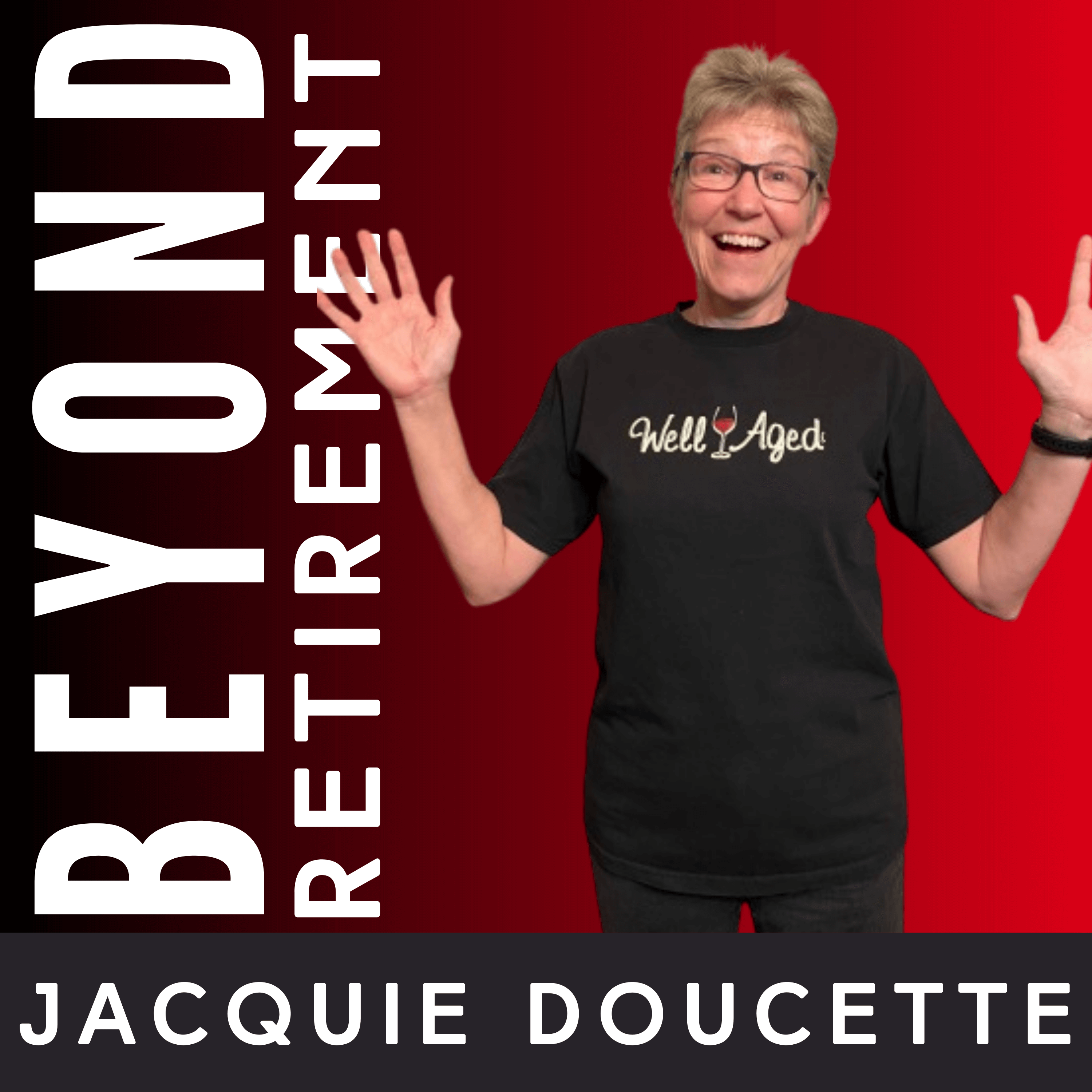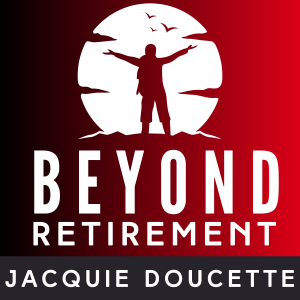
As I say each week, if you haven’t listened to last week’s interview, stop here and go back to listen now. I was talking with Radon Stancil, a financial planner who focuses on preparing people for retirement.
Radon believes that financial planning needs to be both financial and intellectual, so his firm, Peace of Mind Wealth Management, focuses on 3 key concepts – your financial needs, your legacy and your lifestyle – because they all play a role in how your retirement works out for you.
I think Radon and his team have the right idea. Their goal is to help you make the plan and get into the right mindset to be retired. And that’s what this show is all about, isn’t it!
It’s important to pick something that you want to do in retirement. I’ve talked about this before. It needs to be something that you really enjoy, so you look forward to doing it. It’s a passion project, ultimately, so it doesn’t matter if it makes money or not.
It can truly be anything, as Radon suggests, like baking or scuba diving. You just have to find something to look forward to.
The other big point that Radon makes is that there are stages to retirement and you have to plan for each of them, so you know how much money you’ll need to have set aside.
For example, the first year or so after retirement will probably be quite busy as you run around making sure all the proper arrangements have been made and things are all in place.
Then the next 2-4 years are the “fun” years, where you might have grandchildren to spend time with, maybe you’re going to be travelling, that sort of thing. Basically, you’re doing all the things that you thought retirement would allow you to do.
Then along about year 5 and continuing on from there, things start to settle down a bit. You’ve got the hang of it – this retirement thing is a piece of cake, a walk in the park (maybe quite literally). Maybe you’ll start getting involved in your community or in a local charity, or maybe you’ll decide it’s time to offer to share some of your wisdom and experience with others, setting up a consultant practice or something like that.
One of the most important things, in my opinion, that Radon mentioned is the exercise of writing down the IDEAS you have for your future. Not the full-blown plans, but the general concepts of what your future is going to look like. You know me – any chance I get, I’m telling you to “make a list”!
By writing down the ideas you have about what you’ll do in retirement, you give your brain something to focus on. It’s not going to be anything concrete, but the plan is to get things started.
Because each of us has different ideas about what lies beyond retirement, I’m not going to make any suggestions here – I don’t want to mess up your plans by throwing in other thoughts that aren’t really yours.
Just remember – at the start, write down all the things you think of. Don’t censor the list when you’re starting to come up with ideas and activities. You can always scratch something off the list later, when the plan starts to come together. For now it’s just brainstorming. And this is a list that you should probably keep with you because you never know when something in your daily life will trigger the feeling that you’d like to pursue that thing further...so you add it to the list. It’s like a dream board or vision board for your future life.
I’m going to call it a day here and sign off with a reminder to be sure to tune in next Sunday for my interview with Eric Brotman. He’s going to share his own point of view on retirement and preparation for it. Now go start that activity list!
More Episodes
 2023-12-31
2023-12-31
 2023-12-24
2023-12-24
 2023-12-03
2023-12-03
 2023-11-19
2023-11-19
 2023-11-05
2023-11-05
 2023-10-22
2023-10-22
 2023-10-08
2023-10-08
 2023-09-24
2023-09-24
 2023-09-10
2023-09-10
 2023-09-03
2023-09-03
 2023-08-27
2023-08-27
Create your
podcast in
minutes
- Full-featured podcast site
- Unlimited storage and bandwidth
- Comprehensive podcast stats
- Distribute to Apple Podcasts, Spotify, and more
- Make money with your podcast
It is Free
- Privacy Policy
- Cookie Policy
- Terms of Use
- Consent Preferences
- Copyright © 2015-2024 Podbean.com






